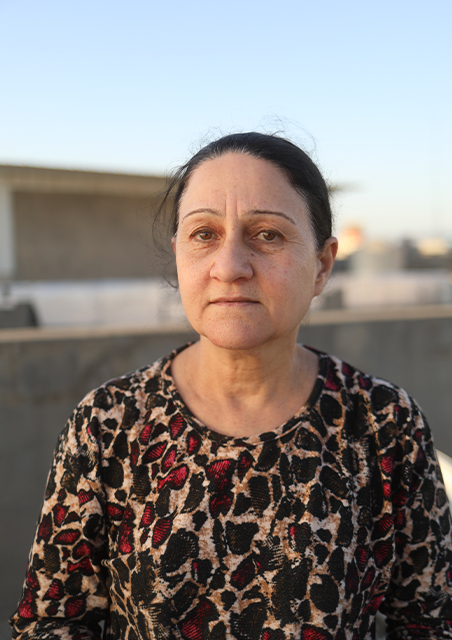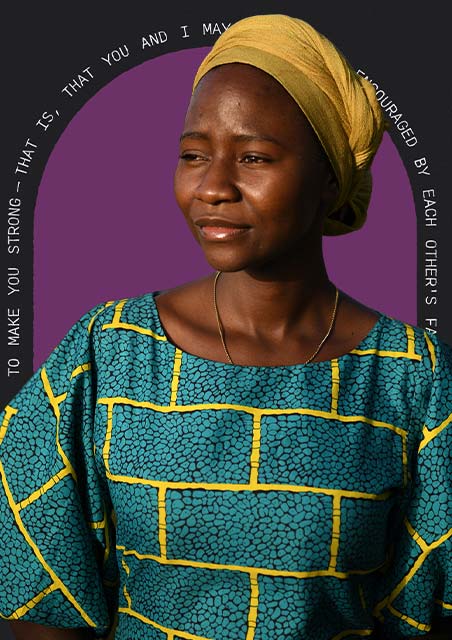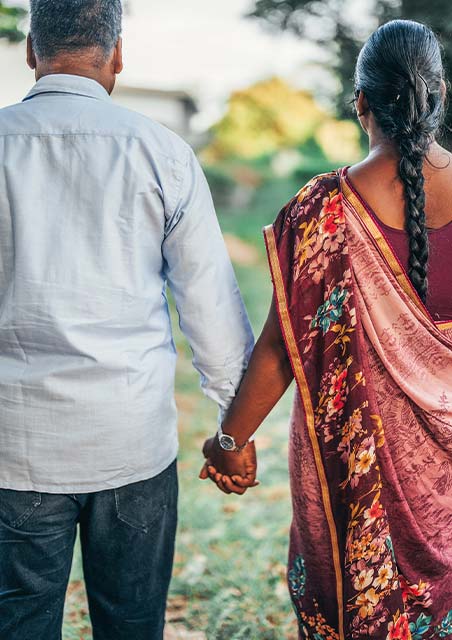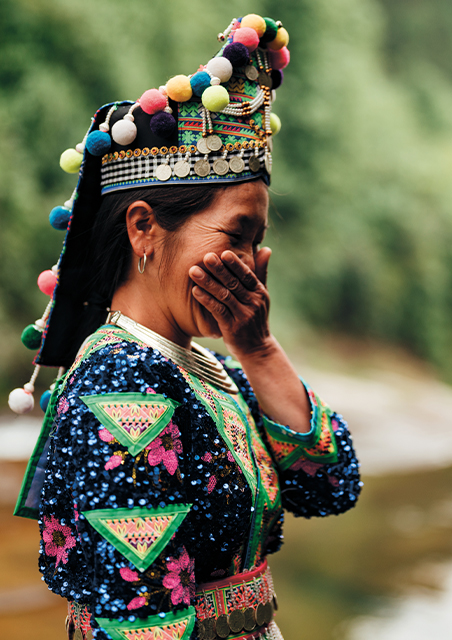After ten years in prison on false charges, seven Indian Christians still await appeal
In August 2008, a prominent Hindu leader was killed by a mob. Even though Maoist terrorists claimed responsibility for the murder, a rumour circulated that Christians were responsible. Seven Christians were arrested and eventually found guilty of murder. Despite significant evidence that they had nothing to do with the attack, Gornath Chalanseth, Bijay Kumar Sanseth, Durjo Sunamajhi, Bhaskar Sunamajhi, Budhadeb Nayak, Munda Badamajhi and Sanatan Badamajhi were sentenced to life imprisonment.
Ten years after their arrest, seven Indian Christians are still waiting for justice.
In August 2008, a prominent Hindu leader was killed by a mob. Even though Maoist terrorists claimed responsibility for the murder, a rumour circulated that Christians were responsible. In the outbreak of mob violence which followed, over 100 Christians were killed in the Indian region of Orissa. Some 300 churches and 6,000 Christian homes were damaged and more than 50,000 Christians were displaced.
Seven Christians were arrested and eventually found guilty of murder.
Despite significant evidence that they had nothing to do with the attack, Gornath Chalanseth, Bijay Kumar Sanseth, Durjo Sunamajhi, Bhaskar Sunamajhi, Budhadeb Nayak, Munda Badamajhi and Sanatan Badamajhi were sentenced to life imprisonment.
They are still in jail, still waiting for their appeal to be heard.
False allegations
Swami Laxmanananda Saraswati was a Hindu monk and an activist for the welfare of India's many indigenous, and impoverished, tribes. On 23 August 2008, a mob of about 50 people surrounded his hermitage. Several men opened fire, killing Saraswati and four others. Maoist Naxalite terrorists claimed responsibility for the attack, but the local community chose to blame the Christians. Saraswati was prominent in the Viśva Hindu Pariṣad, or VHP, a Hindu nationalist political party, and took a hard line against Christians attempting to convert Hindus. The result was a wave of indiscriminate destruction which left over 100 Christians dead, tens of thousands displaced and seven men arrested.
From the start the process was highly suspicious. It took four long years for the trial to run its course. Two trial court judges – who had openly indicated during the trial that the accused were innocent – were transferred off the case. Eventually a third judge passed sentence.
Pabitra Sanseth, the wife of one of the imprisoned Christians, told the media, “My husband had never gone to that place [where the Hindu leader was shot]. He was with us at the time the Swami was killed. How could he be punished for that murder? Since my husband was a firm believer and active Christian leader, they targeted him.”
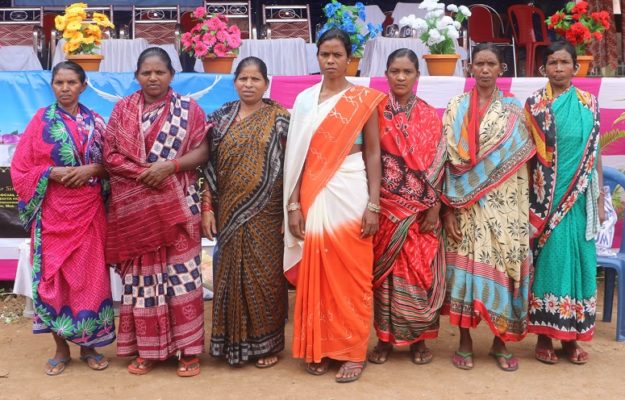 Wives of the seven Christians arrested for a murder they didn’t commit
Wives of the seven Christians arrested for a murder they didn’t commitIn 2015 two top police officials even testified before the Kandhamal judicial inquiry commission that the allegations were false.
Despite this, the appeal hearing has been constantly postponed.
YOU CAN REACH BELIEVERS IN EVERY CORNER OF INDIA WITH VITAL SUPPORT
The case is just one more example of why Christians in India need our help and support. In the ten years since the men were convicted persecution against Christians in India has steadily risen. Hindu extremists have publicly stated their aim to make India free of Christians by 31 December 2021.
Last year, 24,000 Christians were attacked in India. As persecution in India becomes more extreme, Open Doors local church partners have a plan to double their impact. Your prayers, monthly gifts and long-term support can help them reach Christians in every corner of India with practical, legal and spiritual support.
The victims
1. Sanatan Badamajhi
Sanatan Badamajhi’s wife Badusi said that a few days before her husband’s arrest, on 4 October, 2008, some of the Hindu village leaders had warned him that he would soon be arrested. But on the day of the Swami’s murder, Badamajhi, 36, had been tending cattle and sheep, according to a Hindu neighbour, Nakula Mallick. “Police never came to investigate or ask anything about him. If we had been called, we would have testified for him in the court,” said Mallick.
The judge said a gun was seized from Badamajhi’s house, but his wife says they never owned a gun. Police also claimed to have seized an axe from the house, but his wife said the police brought the axe from the house of Mukantho Mallick, a Hindu neighbour, who had accompanied the police to identify the house. “Later, Mukantho has been repeatedly complaining that the police took away the axe. I had only one axe and it is still in my house,” she said.
2. Munda Badamajhi
Munda Badamajhi, 34, was arrested on the night of 4 October, 2008, at his home in the village of Duringpodi.
The prosecution said it recovered a gun from Badamajhi’s home, but his wife, Bandigudali, said her husband did not even know how to use a gun.
“We never had a gun and my husband could not even use a gun,” she said. “This is shocking.”
3. Durjo Sunamajhi
Durjo Sunamajhi, 35, was woken up on the night of 4 October, 2008, when police barged into his house in Budapada village and took him away, as well as the barrel of a broken gun that they found in his house. His wife Gumili said her husband was on a train towards Kerala on the day of the Swami’s murder and had never touched the gun, which she said was an old and broken hunting rifle last used by her husband’s grandfather.
“The government claim is that they recovered two guns [from the houses of these people], but actually only one barrel of a broken gun, which has not been used for years, had been picked up,” said Akkara. “[Gumili] says her husband never used it, her husband’s father never used it; only her husband’s grandfather used it. Imagine! And there was only a barrel of the hunting gun. Now, the government claims to have recovered two guns from two houses, but in the judgement the judge says he has got the three guns, and he names the three! How is that possible?”
4. Bijay Kumar Sanseth
Sanseth’s wife, Pabitra, said police phoned her on 12 December, 2008, and told him to report to the police station the next day. He did so, and has been detained ever since. However, police recorded events differently, saying that on 12 December Sanseth met three of the other accused Christians at a Maoist meeting in a jungle near the village of Sartuli. They added that Sanseth, 42, had been overheard discussing plans to murder the Swami outside Kotagarh High School. This claim was attributed to a witness, Mahasingh Kanhar, who initially denied the claim, but eventually endorsed it during a retrial.
“Wherever I go, people tell me: ‘He was a good man. Why he is in jail?'” said Sanseth’s father, Salei. “The popularity of my son and his high contacts with government officials have led to this tragedy. Many were jealous of him.”
5. Bhaskar Sunamajhi
Bhaskar Sunamajhi, 32, was playing cards with his friends in the village of Kutiguda when police came to collect him on 13 December, 2008.
“You can return tomorrow,” his wife heard them say, when they took him away. But after more than seven years, Sunamajhi has not returned home. The judge said Sunamajhi was ‘hand in glove’ with the Maoists and had undergone several weeks of training at a Maoist camp. However, his wife Debaki said he ‘never ventured [far] from home’.
Biracha Paraseth, a neighbour, added, “This is a total lie. He was with us on the day [the Swami was killed]”.
Pavitra Sanseth, another neighbour, added, “He is a good man. He will not do such a crime like killing of a Hindu leader. All of us feel very bad about this. Sir, if we all could have gone [to court] and explained his innocence, please tell us how we can help and ask for his release.”
6. Budhadeb Nayak
Before his arrest, one of the village elders urged Nayak, 42, to go into hiding, but he refused, saying he had done nothing wrong. Police later came to his house, threatening his eldest son, 20-year-old Lingaraj, that they would soon arrest his father. On the night of 13 December, 2008, they came back and Nayak was arrested.
“He was wearing only a [sarong]. They tied his hands to take him away. He asked for clothes and I gave him a shawl,” recalled his wife, Nilandri.
Three days later, the family visited him in Balliguda jail. The police said he had been with Maoists in the jungle on 12 December, alongside three of the others accused.
7. Gornath Chalanseth
Gornath, 41, was taken into police custody on 13 December 2008. His cousin, a pastor, accompanied him to the police station, and saw him taken away. A couple of days later, after Gornath had not returned, the pastor went back to the station and heard he had been charged with murder.

